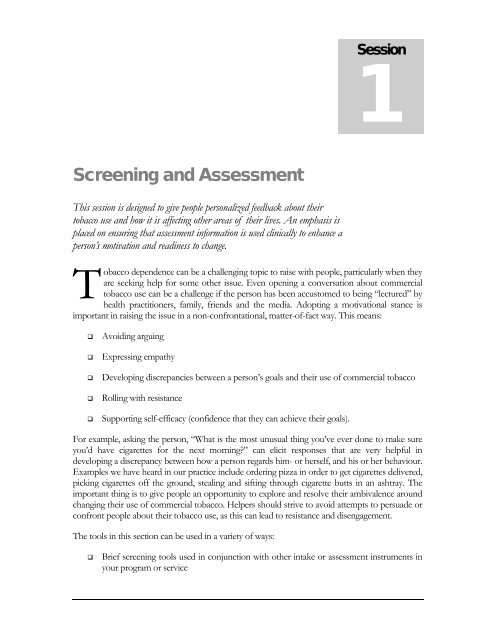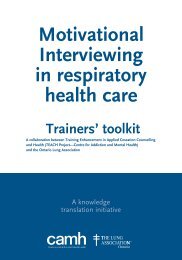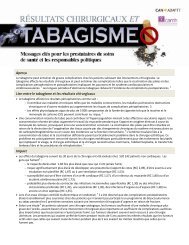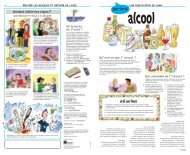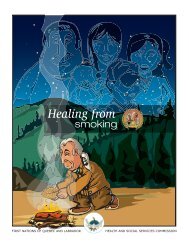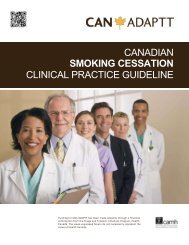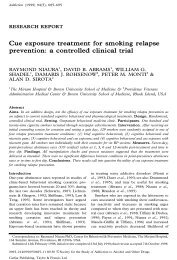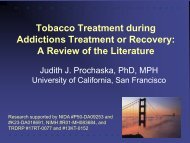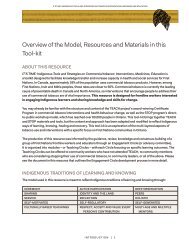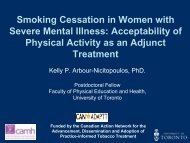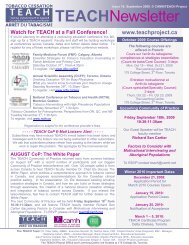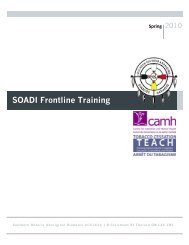Counsellors' Manual for Commercial Tobacco Cessation Treatment
Counsellors' Manual for Commercial Tobacco Cessation Treatment
Counsellors' Manual for Commercial Tobacco Cessation Treatment
You also want an ePaper? Increase the reach of your titles
YUMPU automatically turns print PDFs into web optimized ePapers that Google loves.
Session<br />
1<br />
Screening and Assessment<br />
This session is designed to give people personalized feedback about their<br />
tobacco use and how it is affecting other areas of their lives. An emphasis is<br />
placed on ensuring that assessment in<strong>for</strong>mation is used clinically to enhance a<br />
person’s motivation and readiness to change.<br />
T<br />
obacco dependence can be a challenging topic to raise with people, particularly when they<br />
are seeking help <strong>for</strong> some other issue. Even opening a conversation about commercial<br />
tobacco use can be a challenge if the person has been accustomed to being “lectured” by<br />
health practitioners, family, friends and the media. Adopting a motivational stance is<br />
important in raising the issue in a non-confrontational, matter-of-fact way. This means:<br />
<br />
<br />
<br />
<br />
<br />
Avoiding arguing<br />
Expressing empathy<br />
Developing discrepancies between a person’s goals and their use of commercial tobacco<br />
Rolling with resistance<br />
Supporting self-efficacy (confidence that they can achieve their goals).<br />
For example, asking the person, “What is the most unusual thing you’ve ever done to make sure<br />
you’d have cigarettes <strong>for</strong> the next morning” can elicit responses that are very helpful in<br />
developing a discrepancy between how a person regards him- or herself, and his or her behaviour.<br />
Examples we have heard in our practice include ordering pizza in order to get cigarettes delivered,<br />
picking cigarettes off the ground, stealing and sifting through cigarette butts in an ashtray. The<br />
important thing is to give people an opportunity to explore and resolve their ambivalence around<br />
changing their use of commercial tobacco. Helpers should strive to avoid attempts to persuade or<br />
confront people about their tobacco use, as this can lead to resistance and disengagement.<br />
The tools in this section can be used in a variety of ways:<br />
<br />
Brief screening tools used in conjunction with other intake or assessment instruments in<br />
your program or service


